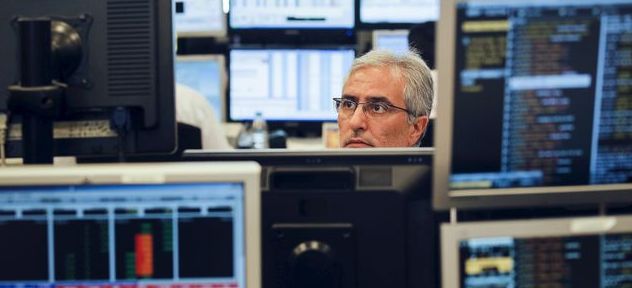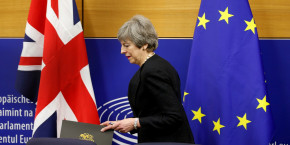
The European indices have returned to negative territory on Monday amid growing fears of a recession, despite having quoted green early in the morning after a positive IFO index in Germany. The Ibex has fallen 0.21% to 9,179 points, weighed down by the bearish behavior of large stocks such as Inditex (-1.33%) and Repsol (-0.76%).
- 11.473,900
- 0,33%
Cellnex (+ 3.22%), Naturgy (+ 0.65%) and Iberdrola (0.54%) were the three most bullish values in a day during which the banking sector managed to minimize the losses of the selective , until finally losing strength at the end of the session.
On the other end of the selective, we find Ence once again (-3.37%), which closes in red for the eighth consecutive session, a streak that has cost 27% of its value in the stock market in the last month due to the threat of the closure of its plant in Pontevedra. It was followed by Enagás (-1.34%) and Inditex.
The most relevant business news of the day was the presentation, by Mapfre (-0.60%), of the Strategic Plan 2019-2021, according to which it expects to reach 30,000m euros in revenue in 2021.
FEAR OF RECESSION
The fear of a possible recession continues to be the main burden of the stock exchanges at European level, and this despite the fact that business confidence in Germany in the month of March has risen from 98.5 to 99.6, better than expected. The experts talk about a rebound after many months of declines.
Although the main European stocks have moderated the falls after starting the session clearly negative, they have closed in red due to these fears that there will be an economic slowdown on both sides of the Atlantic that may turn into a recession. This fear led Wall Street to close with major setbacks on Friday, the same that have been seen this morning in Asia.
It should be noted that this week other macro indicators that will be looked at with a magnifying glass will also be published. Thus, on Thursday will be released the US GDP and on Friday investors will be focused on the CPI of the Euro Zone.
Jasper Lawler, head of analysis at London Capital Group, said on Monday that this fear is triggering an entry into safe haven assets, such as the Japanese yen or gold. With this fear of the bottom recession, it is difficult to find justifications to buy risky assets, he adds.
Lawler explains that the fear of a recession is not only confined to the United States but also seen in Europe. "Fears of the global economic slowdown soared on Friday as German manufacturing production contracted for the third consecutive month in February, while data from the rest of the Eurozone also served to deepen concerns about the global recession, "he says.
TRUMP, BRINGER OF GOOD NEWS?
The good news of this Monday comes from the other side of the Atlantic, with those favorable conclusions from the report from special counsil Robert Mueller into Donald Trump's alleged collusion with Russia. The two-year investigation has concluded that there was no conspiracy with Russia to win the elections. Good news for the president and also favorable news that contribute to strengthen political stability on the other side of the Atlantic at a time when the market does not want more destabilizing news.
Experts had warned that a report accusing Trump would have created "a lot of uncertainty" since it would have put the administration's tax and regulatory agenda at risk and would have encouraged the president to take "unfriendly" measures against the market, and be more radical about your trade negotiations with China.
Finally, this will be another very important week (and there are already a thousand) for Brexit. On Friday is the date for the original departure of the United Kingdom from the European Union. However, the process will be extended. This Monday the British Prime Minister Theresa May has admitted that she still lacks support to approve her plan in Parliament.




